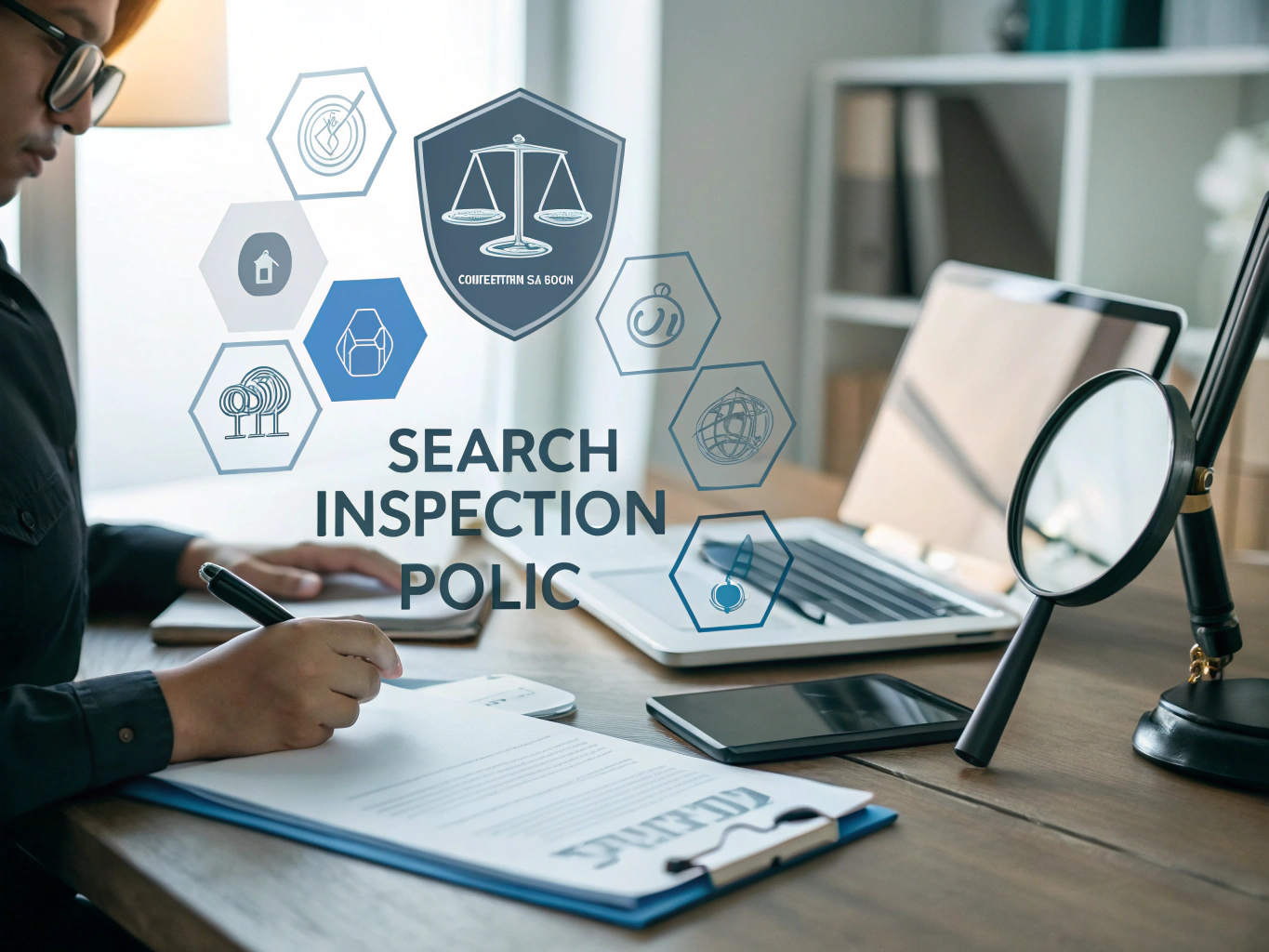Definition
The Search, Inspection, and Investigation Policy is a structured guideline that outlines how your organization conducts searches, inspections, and investigations. It ensures that these activities are carried out fairly, consistently, and in compliance with legal standards while also safeguarding the rights of employees and the organization’s assets.
Key Components
Understanding the essential elements of this policy is crucial for its effective implementation. Here are some of the key components you need to consider:
- Authorization: Only designated supervisors or managers should authorize searches, inspections, or investigations. This ensures accountability and proper oversight. For example, if there’s a suspicion of misconduct, a specific manager should approve the investigation to avoid any bias.
- Privacy and Confidentiality: It’s vital to respect the privacy of individuals during these processes. For instance, if you need to inspect an employee’s workspace, ensure that any personal items are handled with care and that sensitive information is kept confidential.
- Compliance: Your policy must align with applicable laws and regulations. For example, if you’re conducting digital inspections, you need to be aware of data protection laws to ensure that you don’t violate privacy rights.
- Documentation: Keeping thorough records of all actions taken during searches and investigations is essential. This includes noting the purpose, findings, and individuals involved. For example, if an investigation leads to disciplinary action, having clear documentation can support your decisions if challenged.
- Training: Personnel responsible for conducting these activities should receive proper training. Regular workshops or seminars can help keep your team updated on legal requirements and ethical considerations.
- Use of Technology: Utilize technology to enhance your search and inspection capabilities, such as surveillance cameras or software tools. However, ensure that their use complies with privacy laws to avoid potential legal issues.
Importance in the Workplace
Having a clear Search, Inspection, and Investigation Policy is paramount in maintaining a culture of trust and safety within your organization. Consider a scenario where an employee raises a concern about theft within the office. Without a structured policy, the investigation could become chaotic, leading to misunderstandings and potential legal repercussions. A well-defined policy not only streamlines the process but also reassures employees that their concerns will be addressed fairly and confidentially.
Best Practices
Implementing this policy effectively can make a significant difference in how your organization handles sensitive situations. Here are some best practices to keep in mind:
- Communicate Clearly: Ensure that all employees are aware of the policy and understand their rights and responsibilities. Regularly remind them through meetings or newsletters.
- Conduct Regular Reviews: Periodically review and update the policy to reflect any changes in laws or organizational needs. This keeps the policy relevant and effective.
- Involve HR Early: Whenever a search or investigation is warranted, involve your HR team from the outset. Their expertise can help navigate complex situations and ensure compliance with labor laws.
- Foster a Safe Environment: Encourage employees to report concerns without fear of retaliation. This can lead to a more transparent workplace where issues are addressed proactively.
- Document Everything: Maintain meticulous records of all searches and investigations. This practice not only aids in transparency but also protects the organization in case of disputes.
Legal Considerations
It’s crucial to ensure that your Search, Inspection, and Investigation Policy complies with relevant local, state, and federal laws. For example, if your organization operates in a jurisdiction with strict privacy laws, you must ensure that your investigations do not infringe upon employee rights. Failing to comply could lead to legal consequences, including lawsuits or fines. Additionally, understanding labor laws related to employee rights during investigations is essential to protect both the organization and its employees.
Conclusion
In summary, understanding and implementing a comprehensive Search, Inspection, and Investigation Policy is vital for fostering a secure and respectful workplace. By following the guidelines outlined here, you can navigate potential issues with confidence while respecting the rights of all individuals involved. Remember, a proactive approach not only protects your organization but also contributes to a positive work environment where employees feel valued and safe.




